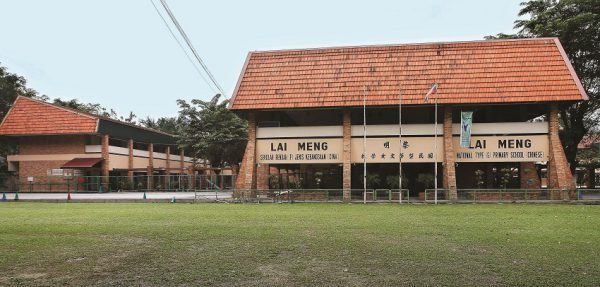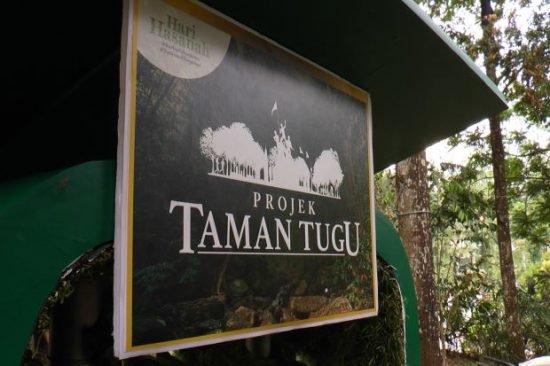Plastic bag ban takes effect in Federal Territories
Enforcement of the compulsory use of biodegradable and compostable plastics bags and food containers in the Federal Territories officially started on Sept 1. With the implementation of the ruling, the price of plastic bags is expected to increase by three to sixfold, while food containers will cost about 30% more. Business owners in Kuala Lumpur found flouting the ruling will face a maximum RM1,000 compound under the Local Government Act 1976, among other by-laws, while those in Putrajaya and Labuan will be bound by the local by-laws. (The Star Online)
MRT lines to boost office space occupancy
According to Knight Frank Malaysia, the market for office space in the capital and surrounding regions has been under pressure due to oversupply, but this could change with the completion of the Sungai Buloh-Kajang MRT (MRT Line 1). MRT Line 1, coupled with the ongoing construction for the Sungai Buloh-Serdang-Putrajaya MRT Line (MRT Line 2) would boost demand for office space in established and upcoming decentralised locations. The quality of office stock for both Kuala Lumpur and Selangor continues to be upgraded with the completion of more Grade A and dual-compliant (MSC+GBI) buildings that cater to the requirements of large corporations and multinational companies. (NST Online)
Magna Prima may develop 1.06ha plot in KL
Magna Prima Bhd may develop the prized 1.06ha site in Jalan Ampang, Kuala Lumpur, by itself, instead of an outright sale. A new development plan is in the works for the freehold land, where the Lai Meng primary school was formerly situated, and is estimated to fetch a GDV of RM2.2 billion. Magna Prima had bought the land seven years ago for RM1,350 psf and intended to carry out a mixed project with GDV of RM1.8bil. Magna Prima is looking at a price tag of about RM3,500 psf for the land, and is open to selling it if a good offer comes in, but if it takes too long the company plans to develop the land on their own or in a joint venture with a reputable developer. (NST Online)
WCT has started talks with authorities on REIT plan
WCT Holdings Bhd, the construction and property outfit linked to Pavilion Group’s Tan Sri Desmond Lim, said it has started talks with the relevant authorities regarding its proposal to set up a real estate investment trust (REIT). However, it has yet to submit any application to Securities Commission Malaysia for its approval to establish the REIT. In June, it was reported that WCT was expecting to list the REIT by year-end, and that it would have an asset size of over RM1 billion, with assets comprising Paradigm Mall in Petaling Jaya, AEON BBT Mall and the Premiere Hotel in Klang. (The Edge Markets)
Penang reclamation project still awaiting federal approval
Penang chief minister Lim Guan Eng is questioning why Penang’s reclamation project has not been given the go-ahead yet while approval has been given to other states for their projects. He expressed his disappointment at the Prime Minister’s statement claiming he would not support the reclamation plans if local fishermen’s livelihood was affected, as Penang gave out the most compensation in Malaysia to fishermen affected by the reclamation. The Penang South Reclamation Scheme (SRS) is a massive plan to reclaim three islands totalling 1,800ha off the southern coast of Penang. The success of the Penang Transport Masterplan depends on funding from property development on the islands. The environmental impact assessment of SRS was recently completed and is now awaiting federal approval. (The Star Online)
Sabah developers to focus on residential property
Developers in Sabah are expected to focus on the construction of residential properties over the next few years, due to a glut in commercial space, according to the Sabah Housing and Real Estate Developers Association. The surplus in commercial property, especially in Kota Kinabalu, is said to be caused by high property prices and strict loan application requirements imposed by banks. From now until 2018, only one or two commercial real estate projects will be launched. Developers now will have to concentrate on affordable property, mostly residential, priced at RM400,000 and below. There will not be many launches of high-end residential property. (Free Malaysia Today)
Taman Tugu park first site to be placed under public trust
Prime Minister Datuk Seri Najib Tun Razak announced on Monday that the Government has approved the National Heritage Trust, which is a national public trust, to hold and manage the 66-acre Taman Tugu. An additional 25 acres of land adjacent to Taman Tugu will also be transferred to the trust. (The Star Online)
 Tabung Haji logo to be displayed at its buildings in holy land
Tabung Haji logo to be displayed at its buildings in holy land
Tabung Haji plans to display the TH logo at all the buildings it owns or leases in the Holy Land for pilgrims, management and accommodation. The prominent placement of the logo would enable easy identification of the buildings by pilgrims staying there. It is also good exposure for the TH brand to the international community, who recognise TH as one of the role models in Haj management, said TH chairman Datuk Seri Abdul Azeez Abdul Rahim. For this year’s Haj season, TH is using 24 buildings to accommodate pilgrims in Mecca, and 11 buildings in Madinah. (NST Online)
‘China’s property market is a major source of financial risk’
China’s property market has become a major source of financial risk and Beijing cannot rely on adjustments to monetary policy alone to resolve the “serious” problems caused by the sector, a central bank official wrote today. Xu Zhong, head of the People’s Bank of China’s research bureau, said that there should be a property tax on homeowners nationwide as a way to help control prices. Chinese homeowners do not pay a recurring property tax on their homes, which they technically lease for up to 70 years, with a small number of exceptions in Shanghai and Chongqing. He also urged authorities to maintain strict controls over property markets in first and second-tier cities, where prices gains have been the strongest. (Malay Mail Online)







